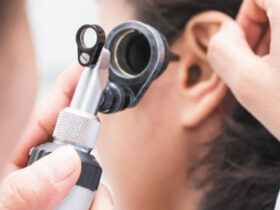By Dr. Viviana Cuberos
 Plantar fasciitis is a common condition characterized by inflammation of the plantar fascia, a thick band of tissue that runs across the bottom of the foot. It causes heel pain and discomfort, often impacting daily activities and quality of life. Among the various treatment options available, shockwave therapy and cortisone injections are two prominent choices. This article compares these two treatments’ effectiveness, safety, and long-term outcomes.
Plantar fasciitis is a common condition characterized by inflammation of the plantar fascia, a thick band of tissue that runs across the bottom of the foot. It causes heel pain and discomfort, often impacting daily activities and quality of life. Among the various treatment options available, shockwave therapy and cortisone injections are two prominent choices. This article compares these two treatments’ effectiveness, safety, and long-term outcomes.
Effectiveness: Shockwave therapy, also known as extracorporeal shockwave therapy (ESWT), involves applying high-energy shockwaves to the affected area. These shockwaves stimulate healing by promoting blood flow and tissue regeneration. Several studies have demonstrated the effectiveness of shockwave therapy in relieving pain and improving function in patients with plantar fasciitis. For instance, a meta-analysis published in the Journal of Orthopaedic Surgery and Research found that shockwave therapy significantly reduced pain and improved functional outcomes compared to placebo or other treatments.
On the other hand, cortisone injections deliver a potent anti-inflammatory medication directly into the affected area. While cortisone injections provide rapid pain relief by reducing inflammation, their long-term effectiveness is debated. Research published in the American Journal of Sports Medicine suggests that cortisone injections may offer short-term relief but could potentially lead to tissue degeneration and increased risk of recurrence in the long run.
Safety: Both shockwave therapy and cortisone injections carry certain risks and potential side effects. Shockwave therapy is generally considered safe, with minimal risk of complications. However, some patients may experience temporary discomfort during the treatment or mild bruising afterward. Complications of shockwave therapy are quite rare; however, it is important that a physician assess the patient’s injury and health before treatment begins.
While effective in reducing pain and inflammation, cortisone injections pose several safety concerns. Repeated injections may weaken the plantar fascia, increasing the risk of rupture or other complications. Moreover, cortisone injections can cause temporary pain at the injection site, thinning of the skin, discoloration, and even infection. Patients with diabetes or compromised immune systems may be at higher risk of adverse reactions to cortisone injections.
Long-Term Outcomes: When considering long-term outcomes, shockwave therapy offers more promising results than cortisone injections. Research published in the Journal of Foot and Ankle Surgery suggests that the benefits of shockwave therapy may persist for up to a year or longer after treatment. Furthermore, shockwave therapy has been shown to stimulate tissue healing and regeneration, potentially addressing the underlying causes of plantar fasciitis rather than merely masking symptoms.
In contrast, cortisone injections may provide temporary relief but often fail to address the underlying pathology of plantar fasciitis. A study published in the Journal of the American Podiatric Medical Association found that while cortisone injections provided short-term pain relief, patients experienced a high rate of recurrence within six months to a year after treatment. Additionally, the repeated use of cortisone injections may lead to tissue degeneration and worsen the condition over time.
Both shockwave therapy and cortisone injections offer benefits and drawbacks in treating plantar fasciitis. Shockwave therapy appears to be more effective in providing long-term pain relief and improving functional outcomes compared to cortisone injections. Furthermore, shockwave therapy is generally considered safer with minimal risk of adverse effects. However, individual patient preferences, medical history, and the severity of the condition should be considered when choosing the most appropriate treatment approach. Patients are encouraged to consult a qualified healthcare provider to determine the best course for managing their plantar fasciitis.
CALL TODAY!
239-333-8809
2590 Golden Gate Parkway, Suite 104
Naples FL 34105










